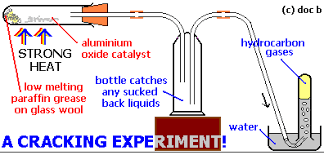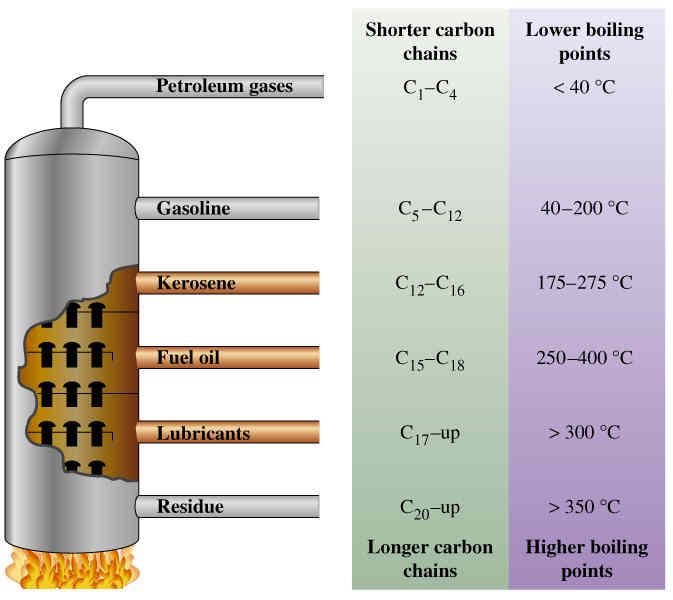- Give correct names and symbols for common substances
- Construct word and balanced symbol equations
- Describe how atoms join (simply)
Year 10 Chemistry
Friday, 25 January 2013
Chemical Fundamentals
You need to be able to:
Thursday, 24 January 2013
C1a Making Crude Oil Useful
You need to be able to:
- Describe the composition of crude oil
- Explain how the fractional distillation of crude oil works
- Explain the cracking of fractions
- Lots of notes on crude oil and making it useful
 GCSE Notes from Doc Brown
GCSE Notes from Doc Brown Videos and simulations on crude oil and its products
Videos and simulations on crude oil and its products
- Cracking crude oil notes
Wednesday, 23 January 2013
C1b Using Carbon Fuels
You need to be able to:
- Evaluate fuels for a particular purpose
- Explain the complete combustion of hydrocarbon fuels
- Explain the incomplete combustion of hydrocarbon fuels
Tuesday, 22 January 2013
C1c Clean Air
You need to be able to:
- Describe the composition and formation of today's atmosphere
- Explain why it is important to control atmospheric pollution
- Describe how a catalytic converter works



- Atmospheric evolution from NASA
- BBC Bitesize notes 1 and 2
- The story of the catalytic converter by BASF
Monday, 21 January 2013
C1d Making Polymers
You need to be able to:
- Describe saturated and unsaturated hydrocarbons
- Explain how to make an addition polymer

 Alkane, alkene and alkyne (triple bond) quiz - alkenes not on the exam!
Alkane, alkene and alkyne (triple bond) quiz - alkenes not on the exam!- Monomer to polymer interactive model
 What, you guys again?!
What, you guys again?!
Sunday, 20 January 2013
C1e Designer Polymers
You need to be able to:
- Explain links between polymer properties and uses
- Explain properties of Gore-Tex(R) and nylon
- Explain issues with the use of polymers
- Designer polymers notes from the BBC (look at all 4 pages)

- Examples of designer polymers and issues with polymers
Saturday, 19 January 2013
C1f Food
You need to be able to
- Explain what cooking does to foods and why this makes them easier to digest
- Explain the action of emulsifiers
- Construct balanced equations showing how baking powder (sodium hydrogen carbonate) works, and how you can test for the gas made
Subscribe to:
Posts (Atom)







